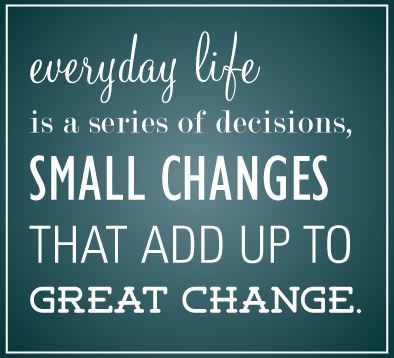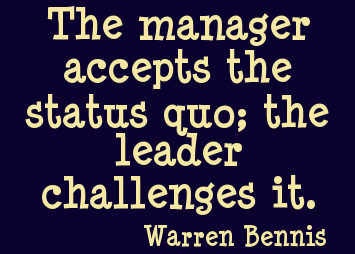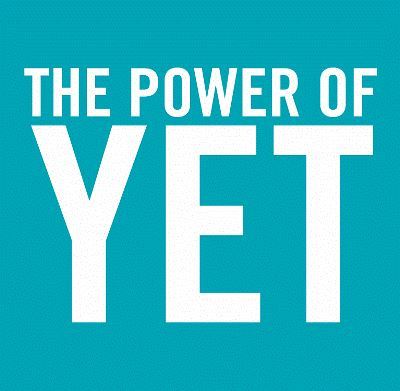Jeremie Averous's Blog, page 14
April 29, 2021
How 2020s Could Be The Decade of Actual Cyberwar Commencement
Cyberattacks and the more systemic issue of cyberwar is becoming a concern, and some expect that 2021 or at least the 2020s will see the first emergence of visible cyberwar. May elements point to the increased usage of government-backed attacks in the cyberspace: from Russia involvement (read Wired ‘Russia’s global hacking efforts are going to unwind in 2021‘) to a number of events in the Middle East around Israel, Iran and other neighboring countries.

However, as the Wired post explains, the government hand is more and more obvious and the excuse of unknown private hackers is quickly becoming inadequate. In addition, cyber defenses are developed. “The allied objective will be deterrence by denial, raising the costs to the Russian attackers (including identifying the culprits by name) and reducing the value of expected gains. In 2021, we will have active cyber defences of government networks and those of critical national infrastructure to identify hostile penetration attempts.“
Cyberattacks have become much more prevalent with Covid confinement and increased remote work, however one can be now be certain that the threat has been identified and as always some form of arms race will happen around cyberattacks.
Cyberwar – with actual impact on infrastructure and physical life – or at least cyberattacks – may become an actual factor of international security in the few years to come.
The post How 2020s Could Be The Decade of Actual Cyberwar Commencement first appeared on The Fourth Revolution Blog.
April 27, 2021
How Antitrust Regulations Are Not Adapted to the Digital Era
In this instructive post ‘The Antitrust Quagmire‘, Frederic Filloux exposes how current laws and regulations about antitrust may not be adapted to the situation of the GAFA digital players. As a result, the Collaborative Age requires a new approach to the antitrust situation.

His arguments revolve around four topics:
internet time is much faster than traditional legal process time which spans over years, giving the opportunity for digital players to render cases obsolete before they are judged,a difficulty to determine exactly the market and competitors of interest, due to the cross-sectional approach of the digital disruption,another difficult in the physical world when it comes to compare e-commerce with traditional commerce, and the fact that e-commerce provides a selling avenue to many small, independent producers that would not be available otherwise,the fact that possible measures and compensations can’t easily be the same that presided in the geographical or product division of Standard Oil or AT&T – in particular because value is in the network effect.Thus a new antitrust approach is required that is adapted to the digital universe of the Collaborative Age. It is needed to prevent too powerful private players to take decisions that border on national sovereignty. What could it look like? It is a bit unclear at the moment, however a quicker bit-sized approach as promoted by Frederic Filloux may be the answer.
Antitrust approach to digital players in the Collaborative Age should be one the major research areas in business law at the moment, and innovation will be required.
The post How Antitrust Regulations Are Not Adapted to the Digital Era first appeared on The Fourth Revolution Blog.
April 24, 2021
How Daily Self-Improvement is Geared to Lead to a Crisis
To follow-up on the previous post ‘How to Explain the Contradiction Between Small Changes and Transformation‘, let’s think further about what self-improvement gurus look for when they recommend progressive, daily change that compounds. I believe that in fact they intend to create the conditions for a rupture change.

Most self-improvement literature is for people who are stuck and probably unhappy with their situation. It would be difficult to tell them that they need to change everything immediately, without being prepared. It is much better to ask them to reflect, change, improve themselves day after day toward what they want to be.
At some point there will be a rupture point with their current environment and their current self. Progress will have been made which will suddenly put in bright light the inadequacy of the situation, and a crisis and sudden transformation will ensue: divorce, changing job and/or becoming independent, etc.
In complex system when it is ready for change the slightest disruption will change completely the system, all of a sudden. The point it to reach this rupture point and let the system mature accordingly.
And this is all the subtleness of self-improvement literature: have the system mature so that one day, all of a sudden, a major change can occur.
The post How Daily Self-Improvement is Geared to Lead to a Crisis first appeared on The Fourth Revolution Blog.
April 22, 2021
How to Explain the Contradiction Between Small Changes and Transformation
I have noticed a contradiction between real world and complexity-driven knowledge, which shows that the changes that really dimension life are those rare, black swans; and the literature about self-improvement that emphasizes the accumulation of small, daily changes and improvements to achieve transformation.

According to one view, which seems to be quite applicable to nature changes and world history, momentous changes are those rare events like wars, catastrophes and unexpected crisis that remodel the world into something widely different.
According to the other view, we should seek progressive, continuous improvement to end up being significantly transformed thanks to the accumulation of changes. This same approach also applies to recommendations about retirement savings, thanks to the aggregation of returns over time: change upon change, compounded, becomes exponential.
Which one should we believe? Which one is true and the one to follow?
Because we live in an increasingly complex world, I would rather seek the momentous change, the crisis, the rupture, as the type of changes that really make sense and redefine our world and ourselves. It is probably the most effective. Seeking a real change may be more effective than progressive, incremental change.
This does not mean that continuous improvement and incremental change are not useful, but they are secondary in the shaping of ourselves and our world to major punctual changes.
The post How to Explain the Contradiction Between Small Changes and Transformation first appeared on The Fourth Revolution Blog.
April 20, 2021
How Leaders Are Needed to Overcome the Status-Quo
This excellent Seth Godin post ‘Living on the delta‘ was a great inspiration. The first topic is about how to deal with status-quo, with those little inadequacies and wrinkles we can’t really get to deal with, because they don’t seem so important.

Status-quo can be invasive. I sometimes meet people who have been managing their small company or organisations for decades in the same way and are desperately outdated in the way they do things. While it is obvious for an outsider it is not for them, and that’s because they have just been managing it, not looking at it from the point of view of a leader.
Leadership – doing the right things – is different from management because it takes a step back to ask whether what is being done is really the right thing to do. Leaders challenge the status quo, managers don’t. And that makes a world of difference. And in today’s world we obviously need more leadership than management!
The post How Leaders Are Needed to Overcome the Status-Quo first appeared on The Fourth Revolution Blog.
April 17, 2021
How ‘Yet’ is Such an Important Word
Seth Godin in this post ‘A simple missing word‘ reminds us how ‘yet’ is such an essential word. Adding ‘yet’ to simple sentences reminds us that we can learn and do stuff we can’t do yet, and that we can eventually finish projects we are struggling with.

“I have not managed to learn how to do this” is terribly changed when ‘yet’ is added in the end.
““Yet” turns “can’t” into “haven’t.” Yet isn’t the result of brazen persistence. It’s what we earn with learning, insight and generosity.“
Yet is a key word for hope and transformation. Let’s put some more ‘yet’ in our negative sentences!
The post How ‘Yet’ is Such an Important Word first appeared on The Fourth Revolution Blog.
April 15, 2021
How Leaders Influence Organisations
In this interesting article ‘Party supporters shift views to match partisan stances‘ a Danish scientific paper is mentioned that studies how the opinion of political party members changed after the leadership of the party changed. They found that opinions could change significantly to match the leader’s.

“Supporters of a political party change their policy views “immediately and substantially” after that party switches its position on an issue, new research suggests, a sign that political elites could be shaping the opinions of the voters whos views they are supposed to represent“
In general, this is aligned with my experience in (business) organisations: I am always amazed how quickly it is shaped by the leader, and this is particularly visible in good or worse when the leader changes. However it was for me less obvious in the case of a looser setting like a political party.
And indeed it is an interesting question in this case as the political party is supposed to represent the views of its members. Or is it really? Is not more a way to align over a number of main positions to seek power? This certainly provides interesting food for thought about the operation of modern democracies.
The post How Leaders Influence Organisations first appeared on The Fourth Revolution Blog.
April 13, 2021
How Data Can Develop Into a Competitive Moat
The example of the hedge fund Renaissance Technologies (here on wikipedia, also this excellent post ‘Jim Simons And Renaissance Technologies‘) is an excellent example of a company that has created a substantial competitive advantage from data gathering and interpretation.

The performance of the fund over decades (since 1988) has been quite impressive. The approach of the fund was to have a passionate “team of of mathematicians whose motivation was doing exciting mathematics and science (rather than hired guns who could be lured away by money or pure trading quants, biased by the industry).”
Still, here is the interesting part: “On top of his intelligent hiring and novel approach to trading, Jim Simons recognized that an impressive data pipeline – and the technological infrastructure to digest and analyze that data was a moat to competitors. It is hard to have an edge if you use the same process and the same data as your competitors.” And from Wikipedia: “Renaissance Technologies, along with a few other firms, has been synthesizing terabytes of data daily and extracting information signals from petabytes of data for almost two decades now, well before big data and data analytics caught the imagination of mainstream technology“.
It is thus the poster-child of a company that has used data retrieval and interpretation as a moat. It is dealing with one of the most public and accessible data (financial trading data), but now the same can be done with many other kinds of user data. Data as a competitive moat is already there, has been for years, and is there to stay.
The post How Data Can Develop Into a Competitive Moat first appeared on The Fourth Revolution Blog.
April 10, 2021
How the GameStop Stock Event Ushers a New Era of Collective Resistance
The Gamestock event a few weeks ago where individual investors banding together drove the stock price up to create havoc in hedge funds and institutional investors is an interesting illustration of the power of the collective mobilized by social networks against institutions. This happened in a context of a brand loved by passionate geeks being under attack by finance hedge funds. I believe it is only the start of such situations and regulators in all industries will have to develop guidelines to deal with such collective mobilisations.

It is today very easy if there an online community with similar passions to create a movement, and this movement can have real-life effects. It happens on the political scene (various revolutions, not to mention the infamous US Capitol invasion) and will also increasingly happen on the economical scene (various boycotts, or joint action against certain companies deemed nefarious).
In the case of Gamestop, some wonder if it is a manipulation (i.e. a movement started by some people who had a vested interest to win heaps of money) but that will be hard to prove because it does not fall under the traditional stock manipulation definition (see for example this Forbes article “Reddit And GameStop Lessons: Former SEC Enforcement Chief Explains Stock Manipulation And How To Avoid Trouble“). At most an intent may be proven, but individuals that played along can’t get indicted.
Now that it is obvious how online communities can create substantial change in the way markets and regulated activities happen, regulators should develop strong guidelines about how to deal with such events: early detection, preventive actions and also a raft of corrective actions (mostly of the cool-off type) if effects are visible. At the same time collective action has always been part of political and trade-unions freedom and can’t be banned. It is a thin thread and it is essential to develop the right approaches and methods to deal with those events.
The post How the GameStop Stock Event Ushers a New Era of Collective Resistance first appeared on The Fourth Revolution Blog.
April 8, 2021
How the Data-Industrial Complex Analogy Has Limits
Lately Tim Cook the CEO of Apple has been using the term ‘data-industial complex’ such as in this article ‘Tim Cook on Why It’s Time to Fight the “Data-Industrial Complex”‘. This is of course a parallel to the ‘military-industrial complex’ and calls up all sorts of influence and lobbyist games, not necessarily for the greater good.

While Tim Cook is using this term in a way to market Apple’s privacy initiatives, it is useful to comment how relevant this parallel with the ‘military-industrial complex’ really is. Wikipedia defines the latter as “an informal alliance between a nation’s military and the defense industry that supplies it, seen together as a vested interest which influences public policy“.
While the data industry certainly creates much value and not necessarily in the best interest of citizens, the alliance with government is more uncertain in particular in view the recent attempts to try to limit the power of major players and anti-trust cases. However, there is certainly an alliance with some powerful political forces and much lobbying to defend data-centric company positions.
In a way this terminology is quite adequate to name a powerful social and political force, in another the analogy has its limits in particular when it is used by Apple CEO, a company that also greatly benefits from user data. Still it reminds us that data management is indeed an industry, with powerful and well resourced players that may use all possible means to defend their power.
The post How the Data-Industrial Complex Analogy Has Limits first appeared on The Fourth Revolution Blog.



